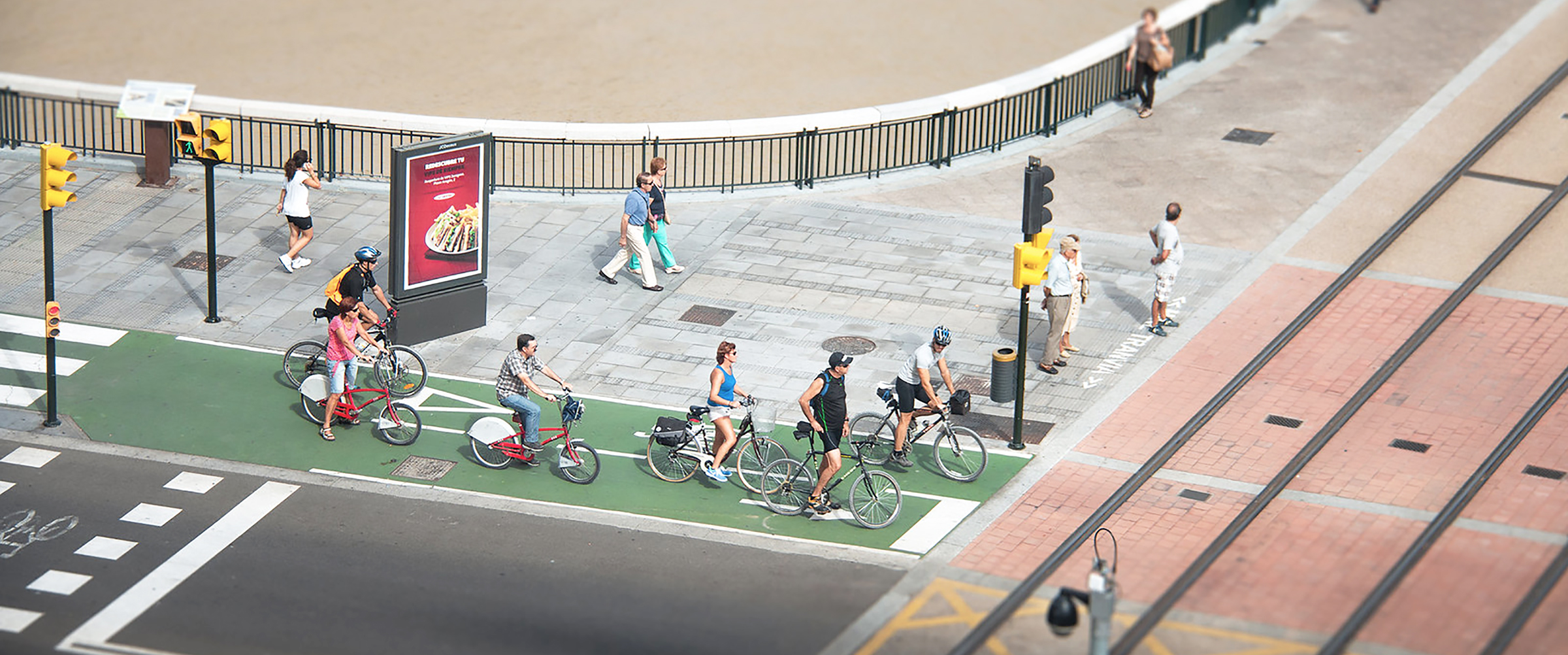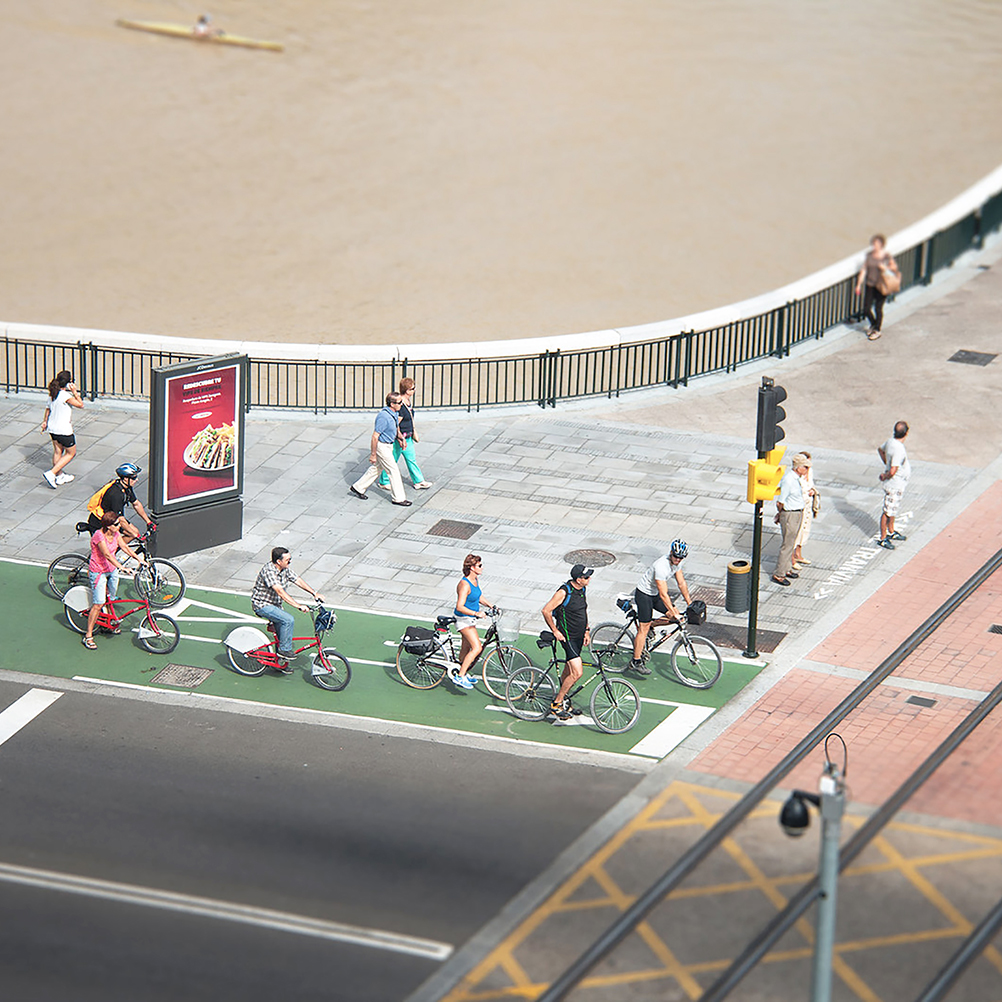Review Progress on Cycling in Your City
Review the following measures and select the ones already in place in your city. Selected measures will not be displayed on your action plan.
has a bicycle master plan (or similar strategy) that includes a budget for implementation.
has implemented a protected cycle lanes using a “quick build” or flexible pilot approach.
holds a car-free day where streets are closed to cars.
has a connected network of bicycle infrastructure including protected lanes and low-stress streets that are well-lit, well-maintained and facilitate direct journeys to all types of destinations.
trains and funds enforcement officers to issue citations for driving behavior that puts cyclists at risk.
has implemented complete street designs that calm traffic, restrict through-access for vehicles, or prioritize people cycling and walking.
adopted safe passing laws and designates funding for enforcement.
offers e-bikeshare through a public or privately-funded program.
sets and enforces low speed limits for vehicles and implements traffic-calming infrastructure to facilitate self-enforcement.
offers bikeshare through a public or privately-funded program that is accessible for all income levels and is integrated with public transit.
provides legal protection for cyclists in its municipal code that clarifies right of way and yielding and establishes clear penalties for drivers.
enables critical mass or group rides to raise awareness about cycling.
Most major intersections in feature intersection treatments including extending painted cycle lanes through the intersection, bicycle boxes, bicycle traffic signals, or fully protected intersections.
has implemented built environment adaptations to improve access for cyclists, including cycle lanes on bridges, wheel ramps on pedestrian stairs, and car-free bridges.
has a cycling advisory committee or working group that convenes a diversity of stakeholders to identify policy priorities and ensure meaningful public input on cycling projects.
has installed public bicycle parking citywide that meets demand.
offers financial incentives that encourage consistent ridership like commuter tax benefits, purchase rebates, or cycle to work schemes.
has disincentivized vehicle parking by reducing off-street parking minimums (or adopting maximums).
offers premium bicycle parking such as covered parking, lockers, or long-term parking garages.
runs cycling awareness campaigns that encourage security, sharing the road with cyclists, etc.
has a congestion pricing program that charges vehicles to enter a designated area.
maintains and publishes a map of bicycle parking locations and safe cycling routes.
offers cycling education programs like public learn to cycle classes, learn to ride curriculum for public school children, and bicycle maintenance workshops at public events.
incentivizes bicycle registration to streamline theft recovery.
taxes dirty vehicle fuels like gasoline and directs revenues to cycling and walking improvements.
supports reducing or eliminating import tariffs on bicycles and e-bikes.


